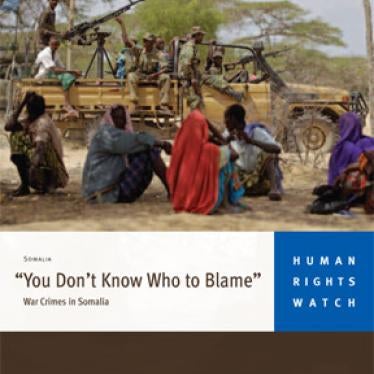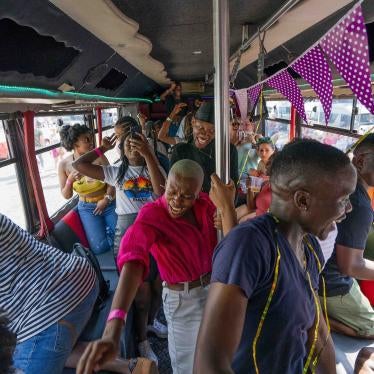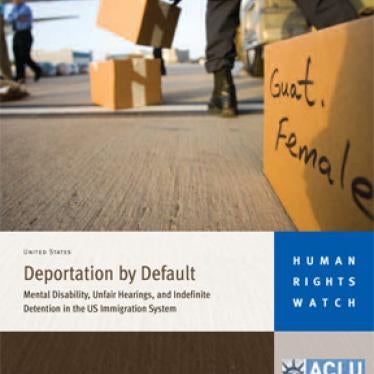(Nairobi) – The bombing claimed by the militant Islamist group al-Shabaab in Somalia’s capital, Mogadishu, on October 4, 2011, is an indefensible attack on civilians, Human Rights Watch said today. The attack, along with an upsurge in fighting in the towns of Dhobley and Dhusamareb that left at least 11 civilians dead, highlights the price civilians are paying in the Somali conflict.
A car bomb exploded outside a compound housing several government ministries, including the Ministry of Education, at the strategic junction of Km4 (Kilometer 4) in Mogadishu. Between 69 and 82 people died, and at least 90 were wounded. Many of the casualties were students and their parents awaiting exam results. Ali Mohamed Raghe, the spokesperson for al-Shabaab, claimed responsibility for the attack, warned civilians to stay away from institutions of the ruling Transitional Federal Government, and threatened further attacks.
“Al-Shabaab’s heinous attack in Mogadishu shows utter disregard for civilian life,” said Daniel Bekele, Africa director at Human Rights Watch. “Al-Shabaab should immediately stop targeting civilians.”
Al-Shabaab should ensure that all its fighters respect the laws of war, Human Rights Watch said.
Human Rights Watch has documented a range of serious attacks on education by al-Shabaab in Somalia over the past year, including intentional attacks on educational institutions, forced recruitment of children from schools, and killings of teachers and students that may amount to war crimes.
The bombing came four days after fighting erupted between al-Shabaab and militia groups affiliated with the Transitional Federal Government, including Raskamboni, in the town of Dhobley near the border with Kenya. Local sources told Human Rights Watch that both sides fired mortars that resulted in civilian deaths from crossfire. At least 11 civilians were reportedly killed. Dhobley is the transit point for Somalis seeking to escape the conflict and famine to Kenya. Fighting has also broken out in the last few days in the central Somali town of Dhusamareb between the insurgents and another militia affiliated with the Transitional Federal Government, Ahlu Sunna Wal Jama’a.
Human Rights Watch called on the United Nations to initiate an independent exercise to map and investigate grave abuses in Somalia.
Al-Shabaab reported on August 6 that it had withdrawn its forces from Mogadishu but warned that it would use new tactics against the government in the war-torn capital. Local and international sources have told Human Rights Watch that the Transitional Federal Government forces have largely failed to fill the security vacuum created by al-Shabaab’s withdrawal.
Al-Shabaab has carried out other devastating attacks on civilians, including a suicide bombing on December 3, 2009, at a medical graduation ceremony in Mogadishu. Two simultaneous bomb blasts in Kampala, Uganda on July 11, 2010, killed at least 76 people.
“Abuses against civilians in Somalia are horrific and yet all too common,” Bekele said. “Ending the cycle of impunity for such violations is key to Somalia’s future.”








